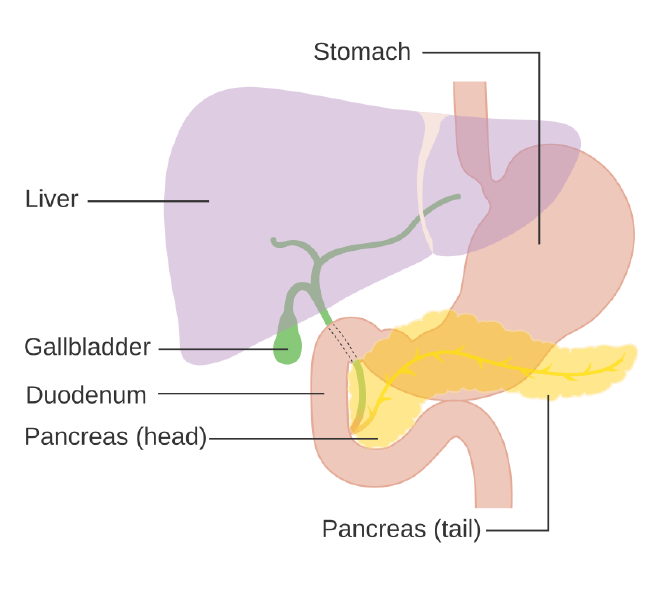Identifican enzima que promueve el crecimiento y propagación de tumores en el cáncer de páncreas
Table of Contents

Según el Instituto Nacional del Cáncer de Estados Unidos, el cáncer de páncreas mata a 50.000 personas cada año y existen pocas opciones de tratamiento eficaces para esta enfermedad. En un nuevo estudio, investigadores de la Facultad de Medicina de la Universidad de California en San Diego han descubierto que una enzima llamada MICAL2 promueve el crecimiento y la propagación de tumores en los adenocarcinomas ductales pancreáticos (PDAC), la forma más común de cáncer de páncreas. El estudio se publicó este 2 de enero de 2025 en Cancer Research, una revista de la Asociación Estadounidense para la Investigación del Cáncer.

Normalmente, MICAL2 desempeña un papel importante en la migración y la morfología celular, pero cuando los investigadores midieron la expresión génica en las células tumorales PDAC, descubrieron que se producía una cantidad excesiva de la enzima en comparación con las células sanas: es la primera vez que se relaciona experimentalmente a MICAL2 con el cáncer de páncreas.
También descubrieron que:
-
Entre los pacientes que se sometieron a cirugía para extirpar sus tumores PDAC, aquellos con baja expresión de MICAL2 en sus células tumorales sobrevivieron aproximadamente el doble de tiempo que aquellos cuyas células tumorales produjeron más de la enzima, lo que sugiere que MICAL2 puede estar involucrado en el avance de la enfermedad a una etapa avanzada.
-
Parece que MICAL2 potencia la vía de señalización KRAS, que regula el crecimiento, la proliferación y la muerte celular y se sabe que es el principal impulsor del crecimiento del tumor pancreático y de la propagación del cáncer a otros tejidos del cuerpo. El silenciamiento del gen MICAL2 en las células PDAC ralentizó drásticamente la actividad de la vía de señalización KRAS.
-
Cuando las células tumorales son deficientes en MICAL2, la vía de señalización KRAS no puede recolectar nutrientes que conducen al crecimiento del tumor.
-
La expresión de MICAL2 promueve la división de células tumorales, la migración y la invasión de tejido sano.
-
Los hallazgos sugieren que MICAL2 podría ser un objetivo prometedor para las terapias farmacológicas contra el PDAC, según el autor principal, Dr. Andrew Lowy, profesor y jefe de división de oncología quirúrgica en la Facultad de Medicina de la UC San Diego y director clínico asociado de cirugía en el Centro Oncológico Moores de la UC San Diego.
-
The paper MICAL2 Promotes Pancreatic Cancer Growth and Metastasis fue publicado en Cancer Research. Autores: Bharti Garg, Sohini Khan, Asimina S. Courelli, Ponmathi Panneerpandian, Deepa Sheik Pran Babu, Evangeline S. Mose, Kevin Christian Montecillo. Gulay, Shweta Sharma, Divya Sood, Alexander T. Wenzel, Alexei Martsinkovskiy, Nirakar Rajbhandari, Jay Patel, Dawn Jaquish, Edgar Esparza, Katelin Jaque, Neetu Aggarwal, Guillem Lambies, Anthony D’Ippolito, Kathryn Austgen, Brian Johnston, David A. Orlando, Gun Ho Jang, Steven Gallinger, Elliot Goodfellow, Pnina Brodt, Cosimo Commisso, Pablo Tamayo, Jill P. Mesirov, Hervé Tiriac & Andrew M. Lowy.
-
The article Enzyme Promoting Tumor Growth and Spread in Pancreatic Cancer Identified, signed by Susanne Clara Bard, was published on UCSD news section
English version #
Enzyme promoting tumor growth and spread in pancreatic cancer identified #
Pancreatic cancer kills 50,000 people each year, according to the National Cancer Institute from U.S.A., and there are few effective treatment options for the disease. In a new study, researchers at University of California San Diego School of Medicine have discovered that an enzyme called MICAL2 promotes tumor growth and spread in pancreatic ductal adenocarcinomas (PDAC), the most common form of pancreatic cancer. The study was published on January 2, 2025 in Cancer Research, a journal of the American Association for Cancer Research.

Normally, MICAL2 plays an important role in cell migration and morphology. But when the researchers measured gene expression in PDAC tumor cells, they found that an excessive amount of the enzyme was being produced compared with non-diseased cells — the first time MICAL2 has been experimentally linked to pancreatic cancer.
They also found that:
-
Among patients undergoing surgery to remove their PDAC tumors, those with low MICAL2 expression in their tumor cells survived about twice as long as those whose tumor cells produced more of the enzyme, suggesting that MICAL2 may be involved in progressing the disease to an advanced stage.
-
MICAL2 appears to supercharge the KRAS signaling pathway, which regulates cell growth, proliferation, and death and is known to be the primary driver of pancreatic tumor growth and the spread of the cancer to other tissues in the body. Silencing the MICAL2 gene in PDAC cells dramatically slowed the activity of the KRAS signaling pathway.
-
When tumor cells are deficient in MICAL2, the KRAS signaling pathway is unable to harvest nutrients that lead to tumor growth.
-
MICAL2 expression promotes tumor cell division, migration and the invasion of healthy tissue.
-
The findings suggest that MICAL2 could be a promising target for PDAC drug therapies, according to senior author Andrew Lowy, M.D., professor and division chief of surgical oncology at UC San Diego School of Medicine and associate clinical director for surgery at UC San Diego Moores Cancer Center.
“Pancreatic cancer has the highest mortality rate of any common cancer and thus current treatments are woefully inadequate,” said Lowy. “We believe it will be possible to target MICAL2 with drugs as it is an enzyme in a class of proteins against which inhibiting drugs have been successfully made to treat other human diseases. We are now working to identify candidate drugs to begin the journey toward blocking MICAL2 function in pancreatic cancer.”
-
The paper MICAL2 Promotes Pancreatic Cancer Growth and Metastasis was published on Cancer Research. Authors: Bharti Garg, Sohini Khan, Asimina S. Courelli, Ponmathi Panneerpandian, Deepa Sheik Pran Babu, Evangeline S. Mose, Kevin Christian Montecillo. Gulay, Shweta Sharma, Divya Sood, Alexander T. Wenzel, Alexei Martsinkovskiy, Nirakar Rajbhandari, Jay Patel, Dawn Jaquish, Edgar Esparza, Katelin Jaque, Neetu Aggarwal, Guillem Lambies, Anthony D’Ippolito, Kathryn Austgen, Brian Johnston, David A. Orlando, Gun Ho Jang, Steven Gallinger, Elliot Goodfellow, Pnina Brodt, Cosimo Commisso, Pablo Tamayo, Jill P. Mesirov, Hervé Tiriac & Andrew M. Lowy.
-
The article Enzyme Promoting Tumor Growth and Spread in Pancreatic Cancer Identified, signed by Susanne Clara Bard, was published on UCSD news section


